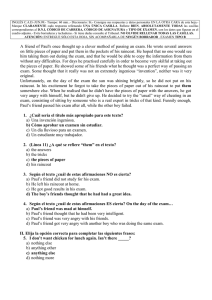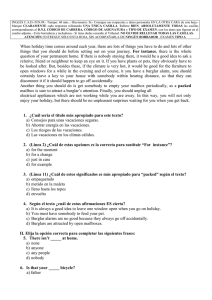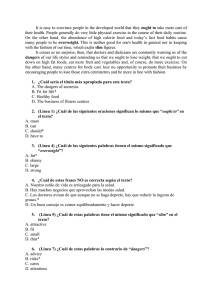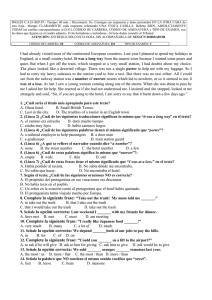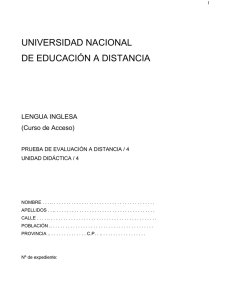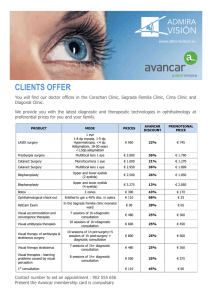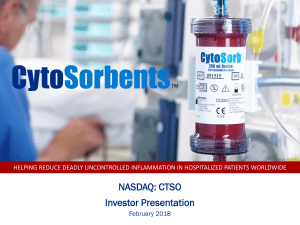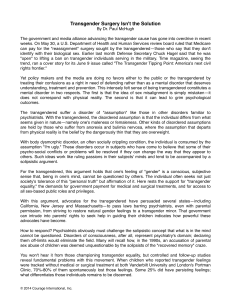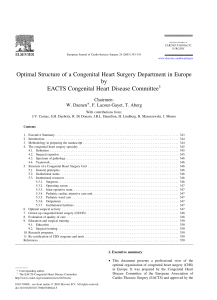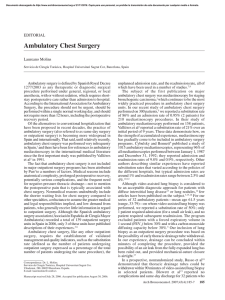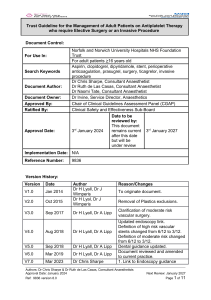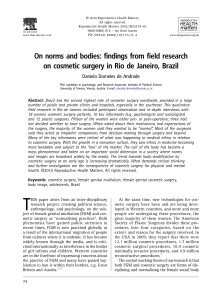If you happen to be in Edinburgh, don`t forget to pay a visit to
Anuncio
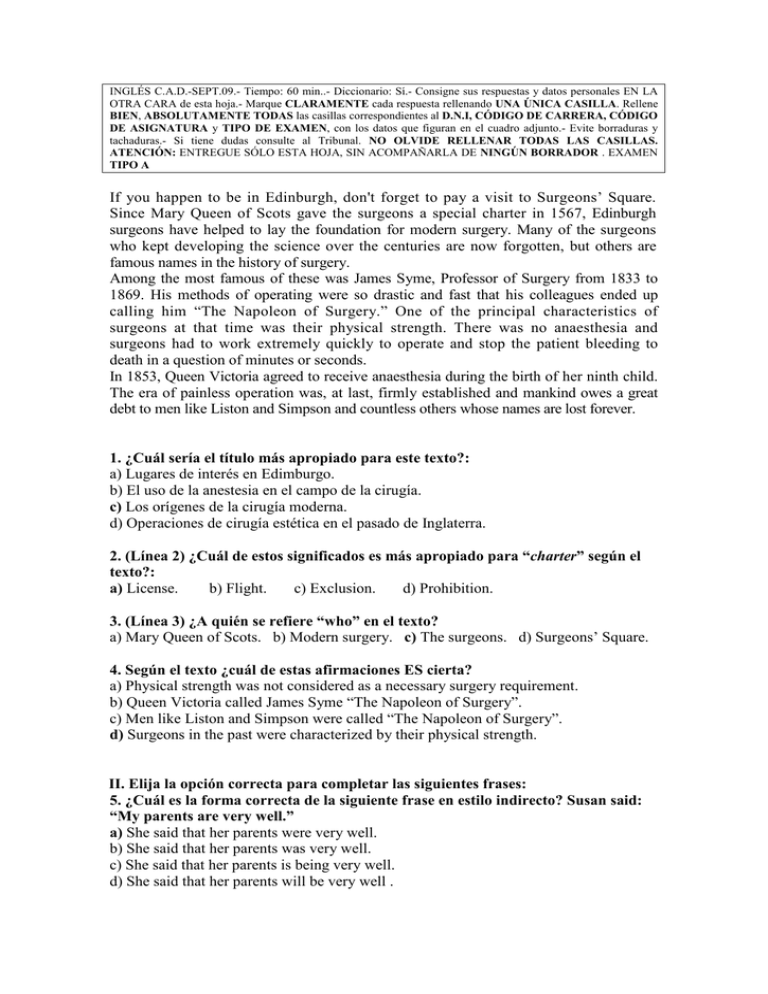
INGLÉS C.A.D.-SEPT.09.- Tiempo: 60 min..- Diccionario: Sí.- Consigne sus respuestas y datos personales EN LA OTRA CARA de esta hoja.- Marque CLARAMETE cada respuesta rellenando UA ÚICA CASILLA. Rellene BIE, ABSOLUTAMETE TODAS las casillas correspondientes al D..I, CÓDIGO DE CARRERA, CÓDIGO DE ASIGATURA y TIPO DE EXAME, con los datos que figuran en el cuadro adjunto.- Evite borraduras y tachaduras.- Si tiene dudas consulte al Tribunal. O OLVIDE RELLEAR TODAS LAS CASILLAS. ATECIÓ: ENTREGUE SÓLO ESTA HOJA, SIN ACOMPAÑARLA DE IGÚ BORRADOR . EXAMEN TIPO A If you happen to be in Edinburgh, don't forget to pay a visit to Surgeons’ Square. Since Mary Queen of Scots gave the surgeons a special charter in 1567, Edinburgh surgeons have helped to lay the foundation for modern surgery. Many of the surgeons who kept developing the science over the centuries are now forgotten, but others are famous names in the history of surgery. Among the most famous of these was James Syme, Professor of Surgery from 1833 to 1869. His methods of operating were so drastic and fast that his colleagues ended up calling him “The Napoleon of Surgery.” One of the principal characteristics of surgeons at that time was their physical strength. There was no anaesthesia and surgeons had to work extremely quickly to operate and stop the patient bleeding to death in a question of minutes or seconds. In 1853, Queen Victoria agreed to receive anaesthesia during the birth of her ninth child. The era of painless operation was, at last, firmly established and mankind owes a great debt to men like Liston and Simpson and countless others whose names are lost forever. 1. ¿Cuál sería el título más apropiado para este texto?: a) Lugares de interés en Edimburgo. b) El uso de la anestesia en el campo de la cirugía. c) Los orígenes de la cirugía moderna. d) Operaciones de cirugía estética en el pasado de Inglaterra. 2. (Línea 2) ¿Cuál de estos significados es más apropiado para “charter” según el texto?: a) License. b) Flight. c) Exclusion. d) Prohibition. 3. (Línea 3) ¿A quién se refiere “who” en el texto? a) Mary Queen of Scots. b) Modern surgery. c) The surgeons. d) Surgeons’ Square. 4. Según el texto ¿cuál de estas afirmaciones ES cierta? a) Physical strength was not considered as a necessary surgery requirement. b) Queen Victoria called James Syme “The Napoleon of Surgery”. c) Men like Liston and Simpson were called “The Napoleon of Surgery”. d) Surgeons in the past were characterized by their physical strength. II. Elija la opción correcta para completar las siguientes frases: 5. ¿Cuál es la forma correcta de la siguiente frase en estilo indirecto? Susan said: “My parents are very well.” a) She said that her parents were very well. b) She said that her parents was very well. c) She said that her parents is being very well. d) She said that her parents will be very well . 6. You ___ finish your homework if you want to go out this evening. a) can b)may c)need d)must 7. Yesterday I ____my exercises early and I ____for a walk a) finished/go b) finished/went c) finish/went d) have finished/have gone 8. I decided to go ___ bus. I was too tired to go ___ foot. a) in/by b) on/on c) by/on d)by/by 9. He has ____telephone number but I haven’t got his. a) my b) his c) him d) mine 10. ¿En cuál de las siguientes palabras no aparece el sonido / a) up b) club c) fun d) hat /?
